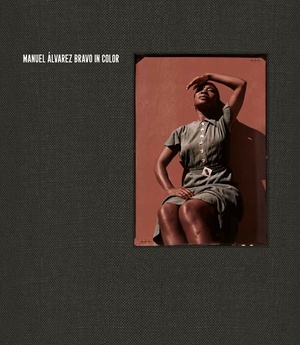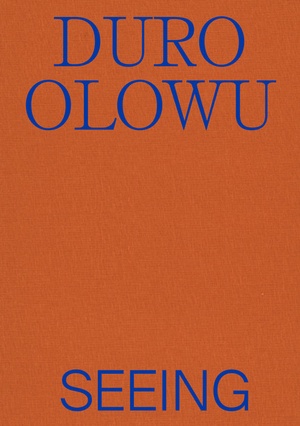


Now More Than Ever. CA$H FOR YOUR WARHOL!
We are entering week three of exploring new strategies to remain engaged with you - our gracious and supportive audience - while in the process of hopefully generating some much-appreciated income. :) Just prior to the onset of our unsettling new reality, we received a new shipment of "Ca$h For Your Warhol" artworks from their creator, Geoff Hargadon. As Arcana is of course closed, we're sending this out to let you know we have twenty-five of these highly sought after pieces available on a first come, first served basis to brighten your walls and outlook, Originally spawned from the fallout of 2008's Global Economic downturn, "CFYW" is our Boston-based pal Geoff's take on art-as-commodity, an ongoing reference to financial crisis and the ubiquitous signage that responds to it. Introduced in 2009, these brightly colored signs are screen-printed on genuine coroplast, mirroring the same materials and design principles used by the anonymous forces trying to profit on misfortune in order to acquire your house, car, and diabetic test strips.
Produced irregularly in small batches, Hargadon's works bear an ever-evolving variety of wry phrases commingling the realms of art and finance. They are typically posted in the dead of night in the public sphere in proximity to Art exhibitions or Fairs, and gone by the next day: their temporal presence memorialized as hundreds of images posted to social media.
Cash For Your Warhol was the subject of a solo exhibition at Montserrat College of Art in 2010, featured by Société Perrier at Pulse Miami in 2011, and these inadvertent artworks have been acquired by a numerous collectors and institutions, including the Andy Warhol Museum in Pittsburgh, MIT List Visual Arts Center in Cambridge, and the Hood Museum of Art, Hanover, NH. The project has also been presented globally in other media, such as sound, plaques, and billboards.
This is a rare opportunity to acquire one of these reasonably-priced gems, so, please consider keeping spirits up and the global economy thriving by checking out our full selection of brand new and classic CA$H FOR YOUR WARHOLS. You may place your secure order on our website here, email your inquiry, or call us at 310-458-1499.
Wishing you health and well-being in these uncharted waters!

Book of the Day > Plant Tribe: Living Happily Ever After With Plants

Book of the Day > Christian Louboutin The Exhibition(ist): Exhibition
Book of the Day > Christian Louboutin The Exhibition(ist): Exhibition. ● ⠀purchase here! ● ⠀
An exuberant self-portrait of Christian Louboutin and his myriad inspirations, this volume is an exclusive glimpse into the mind and soul of the man behind the shoes. Perhaps one of the most influential luxury shoe designers of our time, Christian Louboutin's signature high stilettos and lacquer-red soles have become true cultural staples and fashion must-haves. In this new volume the inimitable designer reveals the influences behind his shoes, drawing on his encyclopedic knowledge of objects and artworks. A journey into nearly thirty years of footwear design and excellence, readers uncover Louboutin's vivid creative universe--filled with Amazonian bird feathers, Kachina dolls, crosses, masks, crowns, and the shoes they inspired. A true look into the master's references, exquisite drawings and sketches of footwear juxtapose against artworks from international museum collections and some of the designer's cherished objects, which Louboutin personally selected in tandem with Olivier Gabet, the director of the Musée des Arts Décoratifs. Surrealist photographs of Louboutin's dazzling creations by Jean-Vincent Simonet bring electric, sensual style to the pages while a visceral dialogue between the designer and writer Éric Reinhardt runs through this veritable Wunderkammer of a book. Published on the occasion of the Christian Louboutin Exhibition show at the Palais de la Porte Dorée in Paris (February 20- July 28, 2020), this exquisite piece of bookmaking offers a highly personal, vivid glimpse into the designer's life and genius.

Book of the Day > Growing Weed in the Garden: A No-Fuss, Seed-to-Stash Guide to Outdoor Cannabis Cultivation
Book of the day > Growing Weed in the Garden: A No-Fuss, Seed-to-Stash Guide to Outdoor Cannabis Cultivation. Published by Abrams. ● purchase here ● ⠀
" The definitive and first-ever guide dedicated exclusively to growing weed in your home garden. From the former garden editor of Sunset magazine, Johanna Silver, Growing Weed in the Garden brings cannabis out of the dark, into the sunlight. This groundbreaking, comprehensive guide to incorporating weed into your garden leads you from seed or plant selection to harvest. Filled with gorgeous photographs of beautiful gardens, as well as step-by-step photography that shows how to dry, cure, and store cannabis, make tinctures and oils, and roll the perfect joint, this book provides all the information you need to grow and enjoy cannabis. For both the stoned and sober, the new and seasoned gardener, Growing Weed in the Garden is the definitive guide to doing just that."

Book of the Day > Weegee’s Naked City
Book of the Day > Weegee’s Naked City. Published by Damiani & International Center of Photography. ⠀ ● purchase here ● ⠀ ⠀ ⠀
Weegee wandered the streets of 1940s New York at night looking for lovers, corpses and criminals to shoot for tabloid readers who “had to have their daily blood bath and sex potion to go with their breakfast” (as Weegee put it with characteristic flair). His images crackle with visual puns, blinding flashes and complex compositions; they display the bawdy sensationalism of the tabloids they were shot for and the stylishness of the film noir cinema that took inspiration from them. ⠀ With Naked City, his first publication, Weegee gave his images the photobook treatment. Weegee’s eye for surprising juxtapositions and the minutiae of city life is in full force in the images chosen and their inventive, playful sequencing, all narrated in the photographer’s own distinctive voice. Naked City is Weegee at his wisecracking best, and it is here republished in a beautifully printed new edition. Including texts by New York Magazine City Editor Christopher Bonanos and International Center of Photography Weegee specialist Christopher George, Naked City refreshes a photo classic.

Book of the day > ToiletMartin PaperParr Book

Book of the day > Duro Olowu: Seeing
Book of the day > Duro Olowu: Seeing. By Published by Prestel. Flying off of the shelves faster than hand sanitizer!!! Link to order in bio - more copies on the way... "Fashion world leader Duro Olowu applies his creative process and cosmopolitan eye to a major exhibition drawn from Chicago's great art collections. Nigerian-born British fashion designer Duro Olowu is internationally renowned for his womenswear label launched in 2004 that speaks to a cosmopolitan sensibility informed by his international background and a confident eye for visual disciplines from art to film to popular culture. Olowu's global viewpoint has translated into wildly popular platforms and projects from Instagram postings to revelatory curatorial projects in London and New York that position him at the transcultural crossroads of art, culture, and fashion. Now Olowu turns his gimlet eye on Chicago to curate a show drawn from that metropolis's public and private art collections, anchored by the MCA's holdings. Published on the occasion of Olowu's largest curatorial project, Duro Olowu: Seeing elucidates the designer-cum-curator's creative process as he imagines relationships between artists and objects across time, media, and geography: Naomi Beckwith illuminates Olowu's curatorial process, driven by a voracious appetite for contemporary art and culture brought together in sharp juxtapositions. Valerie Steele situates Olowu's designs within the contemporary fashion world. Ekow Eshun focuses on Olowu's role within Britain's black and Afro-Caribbean creative community. Thelma Golden interviews Olowu about his work as designer, curator, and chronicler of culture and style across the worlds of museums and fashion. And Lynette Yiadom-Boakye creates new fiction for this volume."

Book of the Day > Punkouture
Punkouture. Published by Gingko Press. “Punkouture is a stunning international catwalk displaying and reconstructing everything that has ever been sewn together in punk style. Divided into different thematic sections — clothing, hair, make-up, footwear, accessories, trademarks, and shops — this illustrated guide includes designs by BOY, Vivienne Westwood, Fiorucci, Shelly’s, and more. Punk aimed to be a brutal attack to the middle class. They said that to be punk you just had to wear all that was ugly and combine it in the most absurd way: jailed pants and leather braces, straitjackets with chain belts and buckles in abundance, pants made with bags for garbage, leather pants, ripped fishnet tights, tattered skirts held together by huge safety pins and masking tape… Punkouture‘s color and black & white photographs and illustrations capture all the clashing styles and trends. This collection of texts and images is perfect for fans of the 70’s and 80’s, music, graphic design, and pop and underground culture."

Book of the Day > Daniel Clowes: Original Art
Book of the Day > Daniel Clowes: Original Art. Published by Fantagraphics. “Original Art: Daniel Clowes turns the spotlight on one of the medium's most dynamic creators. A vital entry of the Fantagraphics Studio Edition series, this volume draws from Clowes's nearly 30 years of comics art, ranging from his seminal one-man anthology, Eightball (in which Ghost World was originally serialized), to his most recent graphic novel, 2016's best-selling time travel thriller, Patience. The edition features over 150 pages of art from 1989-present, each reproduced as exact facsimiles of the original to best showcase every detail of the artist's cartooning process. The book also includes new covers, endpapers, and other surprises from Clowes, including five unpublished pages of an abandoned graphic novel and an illustrated glossary of obsolete production techniques used for their original publication. The book also includes several tipped-in pages of clear acetate and vellum to perfectly approximate some of these production processes, making this a one-of-a-kind art object. Carefully curated by the artist himself, many of these pages have hung in museums around the country, and now you can enjoy them in your own library.”
